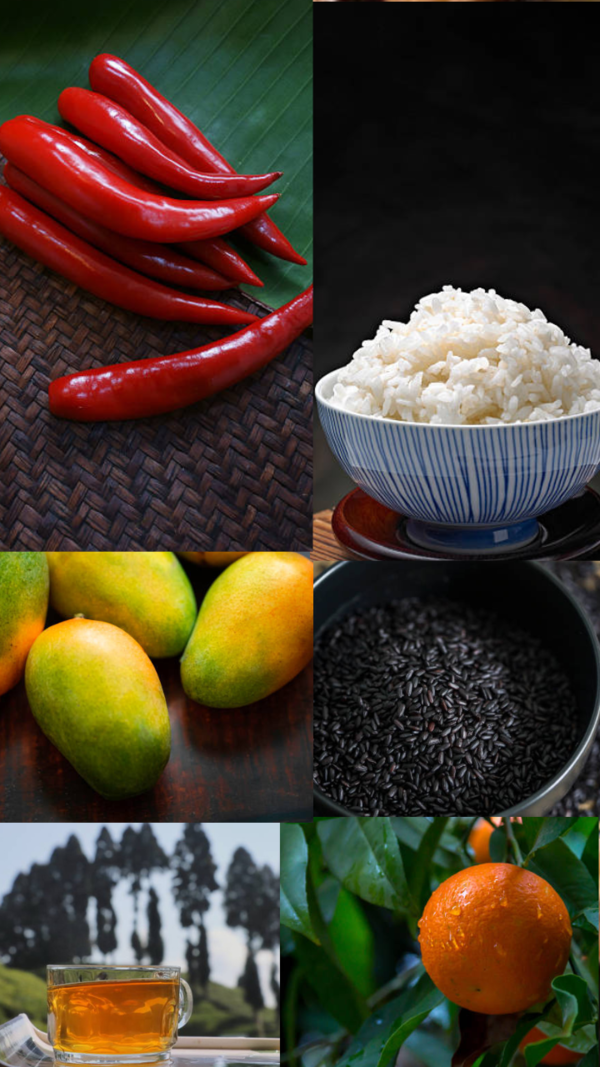- News
- City News
- ahmedabad News
- food processors cut market turmoil with growth recipes
Trending
food processors cut market turmoil with growth recipes
Ahmedabad: While businesses in a majority of industrial sectors are battling headwinds — geopolitical tensions, liquidity crunch and sluggish demand — Gujarat's food processing industry is thriving, fuelled by rising domestic and global appetite.
Companies manufacturing everything from flour and spices to instant mixes, frozen potato-based products, specialty potato products, snacks and more are not only expanding their capacities but also diversifying their offerings, tapping into new markets and doubling down on innovation.
A case in point is HyFun Foods, a key player in the frozen potato segment. Betting big on surging demand, the company just expanded its frozen French fries capacity by 40,000 metric tonnes (MT), bringing its total to 1,10,000MT. "That's not all. HyFun also bolstered its potato specialities by 15,000MT and added a 16,000MT potato flakes facility, collectively investing Rs 400 crore. With bullish projections, the company is now set to pump in another Rs 900 crore, aiming to ramp up its frozen fries capacity by 1,35,000MT and specialty potato varieties by 25,000MT," said Haresh Karamchandani, founder, HyFun Foods.
Another major player making big moves is Iscon Balaji Food Pvt Ltd, a joint venture between real estate major Iscon Group and wafer manufacturer Balaji Group. The company is expanding its capacity with an additional Rs 800 crore investment.
For Shree Bhagwati Flour Mills, expansion is also the name of the game. Already operating five plants around Ahmedabad, the company is scaling up across its product categories — flour, spices, instant mixes, and snacks. "The demand for healthier grains, including millets, is increasing by the day, with consumers looking for premium-quality, contamination-free options," said MD Vashist Patel.
The company, known for its Gaay Chhap and Uttam brands, recently introduced millet flours, which are gaining traction. "With an export footprint spanning 45 countries, including the US, Canada, the UK, France, and Australia, we are further set to strengthen our presence with a Rs 180 crore investment in a new facility on the Rajkot-Ahmedabad Highway. This fully automatic papad manufacturing unit, set to launch in June, will cater to both domestic and international markets," Patel added.
The Wagh Bakri Tea Group is also steeping into expansion, having added 50 new Wagh Bakri Tea Lounge outlets across Bengaluru, Pune, Mumbai, Ahmedabad, Vadodara, Delhi, and NCR. "Simultaneously, we are scaling up our blending and packaging facility in Khandhli and constructing a new premix plant and warehousing facility near Dakor to strengthen backend operations," said Paras Desai, executive director, Wagh Bakri Tea Group.
Meanwhile, Sheetal Ice Cream Limited, an Amreli-based company, has diversified its portfolio for faster growth over the past three years. Traditionally focused on ice cream, which contributes 60% of its revenue, the company ventured into seven additional food categories to ensure steady revenue flow. "Ice cream is a seasonal business, so we expanded into milk and milk products, snacks, bakery, sweets, ready-to-eat, ready-to-cook, chocolates, and beverages," said Bhupat Bhuva, chairman, Sheetal Ice Cream Limited.
The company invested Rs 30 crore in these new categories, with an existing manufacturing capacity of 30 lakh units per day, including ice cream. "Demand for snacks is growing steadily, and we observed that most stores selling ice creams also stock snacks and other food products. This has helped us create a strong distribution network," Bhuva added.
The company exports products to around 10 countries, with ready-to-eat and ready-to-cook segments witnessing rapid growth.
Industry Embraces Innovation
Gujarat's food processing sector is undergoing a technological transformation, with companies increasingly turning to automation, precision engineering, and advanced processing techniques to enhance efficiency and maintain product quality.
Shree Bhagwati Flour Mills, for instance, recently introduced Asia's first touchscreen flour plant in Bhayla, which enables precision milling, ensuring better control over the final product. The company also invested in a cryogenic spice grinding facility, where spices are ground at -110°C to preserve their natural aroma, essential oils, and nutritional value.
The industry's embrace of technology-driven solutions is helping Gujarat's food processing companies scale operations, streamline production, and meet the evolving demands of consumers who prioritise both convenience and quality. With increasing competition and changing consumption patterns, companies that invest in automation, quality control, and energy-efficient production methods are likely to emerge as market leaders in the coming years.
Challenges Prevail
Despite its impressive growth trajectory, Gujarat's food processing industry faces a range of challenges that threaten profit margins and expansion plans. Export restrictions, particularly the govt-imposed ban on wheat and wheat-based products, significantly impacted businesses reliant on overseas markets.
"It's a tough situation, but brand value and product quality remain our key differentiators," said Vashist Patel, MD, Shree Bhagwati Flour Mills.
Inflationary pressures also played a major role in shaping consumer behaviour. With the cost of raw materials, packaging, and logistics on the rise, companies are being forced to adjust pricing strategies without alienating cost-conscious consumers. "Inflation altered spending patterns. More consumers are opting for smaller pack sizes, allowing them to stay within their budgets while still enjoying their preferred products," said Paras Desai, executive director, Wagh Bakri Tea Group.
The sector is also navigating a major shift in consumer preferences, with rising health consciousness prompting demand for organic, preservative-free, and millet-based alternatives. Companies are now focusing on product reformulation and diversification, ensuring they meet these evolving needs without compromising on taste and affordability.
Meanwhile, supply chain disruptions, unpredictable weather conditions, and fluctuating fuel prices continue to pose logistical challenges, affecting the smooth procurement and distribution of raw materials.
End of Article
FOLLOW US ON SOCIAL MEDIA










